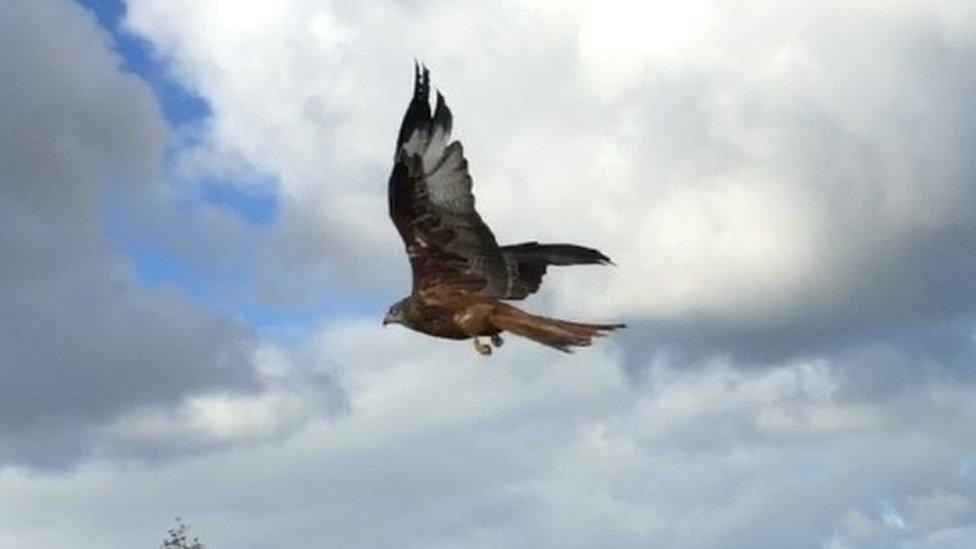Runners need to watch the sky as birds of prey protect their young
- Published
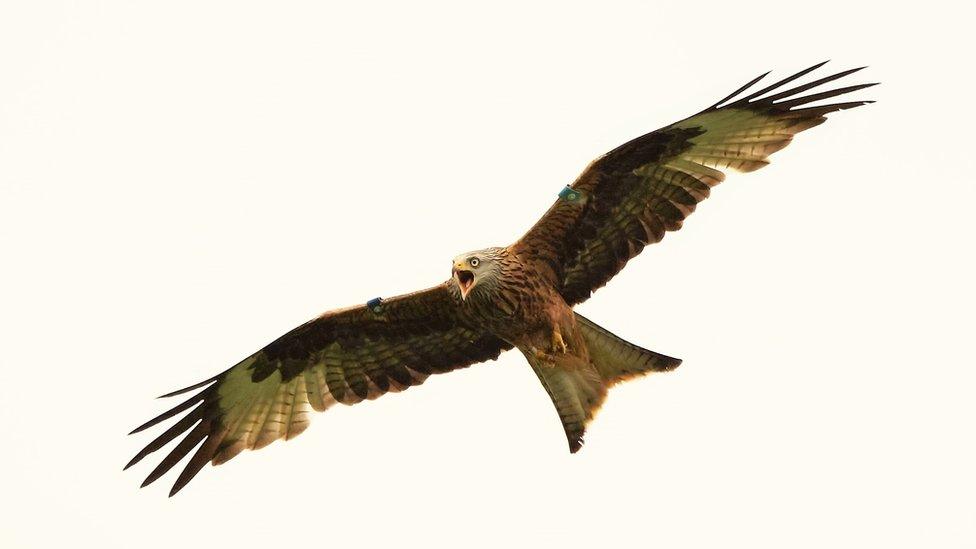
A red kite chasing a buzzard away from its nest
Bangor man Ben Caughers is a regular runner with North Down Athletic Club.
He was out training in the Clandeboye Estate on Friday, 1 July, when suddenly, and without warning, he "felt a large scrape" on his head.
"I was running from Helen's Bay carpark to Helen's tower," he explained to the BBC.
"I was on the way back down when it happened".
"It felt like someone had put their hand on top of my head and was grabbing my scalp.
"I was quite startled as I didn't know what it was."
Ben only realised that the 'hand' on his head was in fact the talons of a large bird of prey,
He believes it was a buzzard.
It flew out in front of him before swooping onto a branch and beginning to squawk in his direction.
"I stopped and realised what happened.
"I was looking around for a stick in case it attacked again."
Retreat
Ben elected to beat a retreat rather than make his stand however.
"I ran on as fast as I could away from that area.
"I couldn't believe it and still can't," he added.
Newcastle man Patrick Lemoine had a similar experience in Donard Forest in the Mournes in May, although he was attacked several times.
He described his experience: "I was running, mainly looking at my feet.
"I looked up for a second and amazingly I saw a bird of prey one metre in front, completely silent, wings open, and just had time to duck.
"He then looped around and rested on a high branch 50 metres from me, I was puzzled but started running again.
'Shock'
"A few minutes later, I got knocked on the back of my head by the buzzard that came from the back this time, again no warning sound or anything, a complete shock.
"It felt like someone had thrown a rock at me, I had a small bruise and tiny cut.
"The bird went back to the same branch and starting squawking excitedly.
"He then left his branch and went out of sight towards the lower path.
"Then I heard someone else shouting and screaming; this stopped and he came back to his branch and started squawking again.
"I grabbed a branch from the ground and tried to start running again but always looking up.
'Silence'
"But in fact I couldn't run because he attacked me again at least three times, always in complete silence, with me having no idea where he came from, every time scaring him away with the branch.
"He left me alone when I finally left the forest and entered the upland."
These latest incidents echo similar events in the Donard area of the Mournes last year.
Those resulted in a mountain running race having to be rerouted after several people received minor injuries.
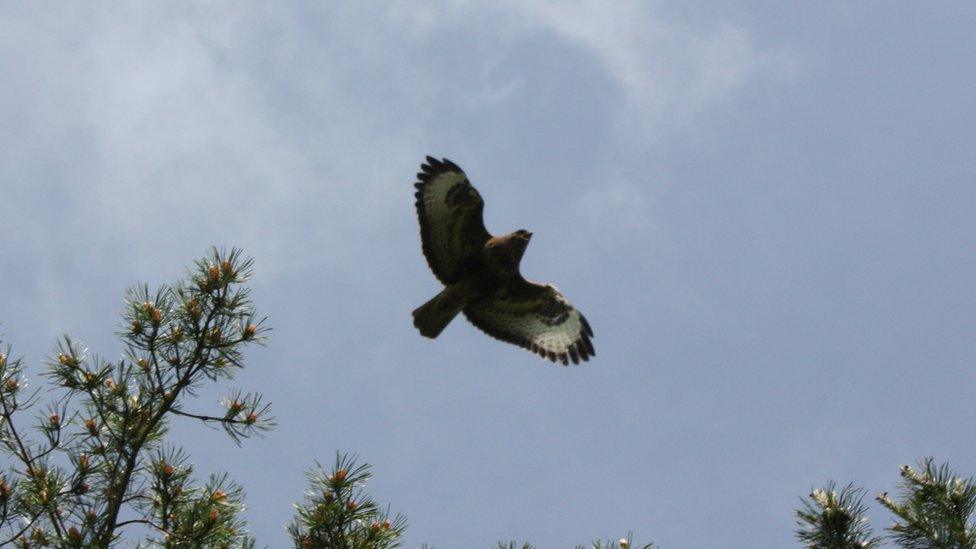
A buzzard 'alarming' near its nest
But, why do the birds engage in this sort of behaviour?
Dr Eimear Rooney works with the Northern Ireland Raptor Study Group (NIRSG), which works to conserve Northern Ireland's bird of prey population.
She explained that the birds are defending their nests.
"During the breeding season many animals defend their territories and breeding sites from potential danger and birds of prey are no exception.
"They will 'alarm call' at any perceived threat that comes too close to their nest site.
'Natural response'
"On rarer occasions they may dive at the threat if it persists, and even make contact with it.
"This is a natural response which can be observed by many different types of wildlife.
"It's rare for a bird to actually make contact but it does happen and NIRSG get a few reports every year at sites where a bird is repeatedly disturbed and aggressive mobbing or 'attacks' may occur."
Rare perhaps but some birds are repeat offenders Dr Rooney explained.
"If it makes contact and it is successful in making the threat leave then it learns to perhaps do this quicker and harder next time so the threat will leave quicker."
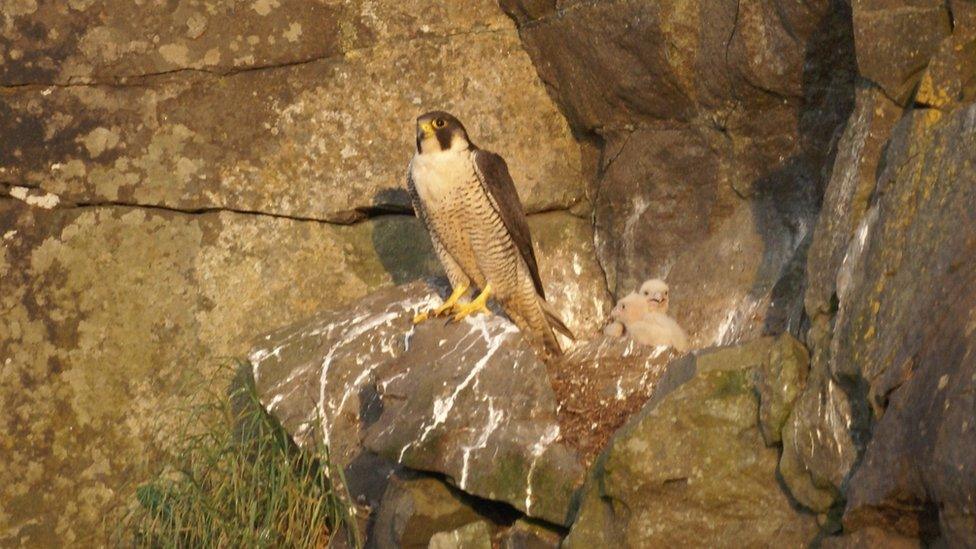
A peregrine on its nest
The raptor group advises people to stay clear of nests during the breeding season, which typically extends from March through to July or early August.
"Most bird of prey chicks will have left the nest by the end of July and after this time the defensive behaviour of the adults will lessen," Dr Rooney added.
- Published5 May 2016
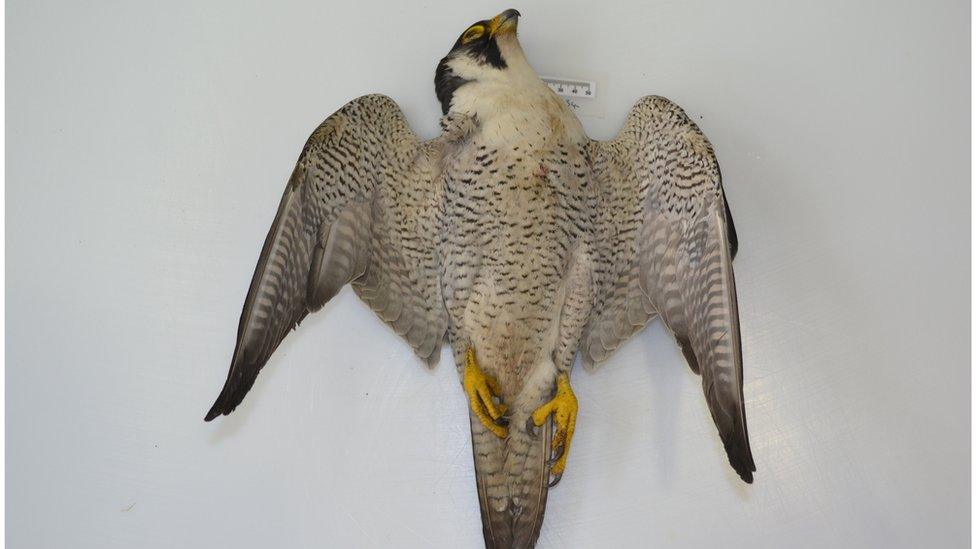
- Published26 November 2015
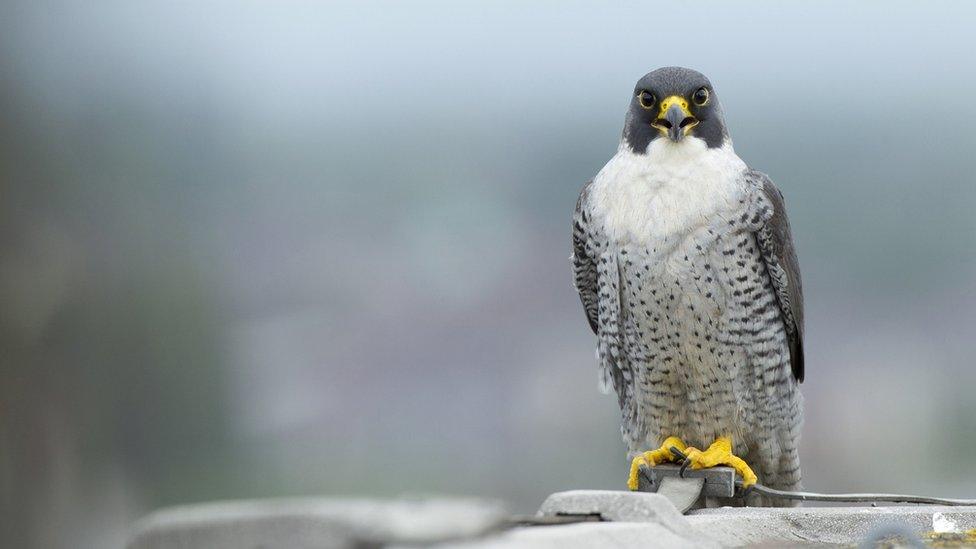
- Published13 October 2015
